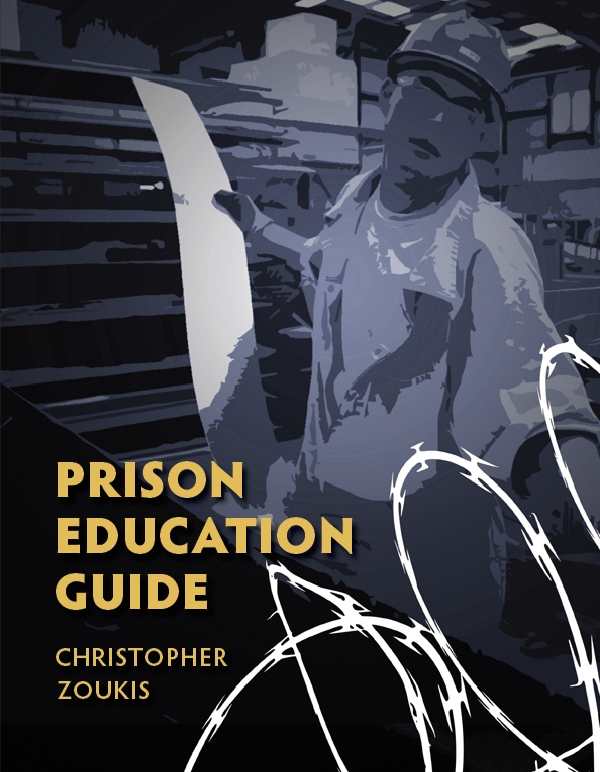Prison Education Guide
A focus on the “psychological work” of prison education makes the Prison Education Guide an important treatise on self-transformation.
In an era of cynical and corrosive politics in which serious societal problems seem forever unfixable, Christopher Zoukis’s new manual for incarcerated citizens, Prison Education Guide, proffers a refreshingly optimistic and proactive view of how individual prisoners can transform themselves and society through dedication, hard work, and perseverance.
Incarcerated in a federal facility in Virginia, Zoukis is a widely published and well-respected author, legal commentator, and prison education advocate. Prison Education Guide begins with five chapters orienting readers to the realities of prison learning and prospective curricular paths and career goals. Subsequent chapters form a comprehensive listing of current correspondence programs offered across the country, ranging from graduate and undergraduate degree courses to vocational certification programs and personal enrichment studies. Before specific listings, the book provides personal recommendations for the best accredited schools, further winnowing the field for aspiring prisoner-students.
Prison Education Guide is crisply written and intuitively structured. The amount of practical information in the manual evidences the painstaking research and compilation process undertaken by the author and his editorial team, as well as the author’s incredible foresight regarding the material challenges that prisoners may face when pursing higher education. For example, school listings include not only an institution’s course offerings, but also tuition costs, application fees, course delivery components that could complicate distance learning—such as multimedia elements that may or may not be allowed in certain prisons—and payment plan options. The book’s appendixes are also chock full of useful resources, including a sample letter prisoners can use to request course information from schools.
But the book is more than a resource manual. Threaded throughout the chapters is an underlying argument for the importance of prison education in building self-esteem, opening future job opportunities, and ultimately reducing recidivism. Some passages become personal and touching in their message of hope and perseverance. Zoukis speaks of finding the indomitable human spirit within the brutish walls of prison life. “Transcending imprisonment with new discoveries develops an inner freedom that imprisonment can never steal away,” he writes. Put another way, Zoukis argues that education develops autonomy where there is none.
This focus on the “psychological work” of prison education makes Prison Education Guide an important treatise on self-transformation. The book’s self-help aspects blend seamlessly with its practical advice and comprehensive resources. Because of these editorial dimensions and the author’s clear moral vision—emphasizing rehabilitation over punishment—Prison Education Guide belongs in every prison library in America. It is a book that has the potential to improve lives, communities, and society as a whole.
Reviewed by
Scott Neuffer
Disclosure: This article is not an endorsement, but a review. The publisher of this book provided free copies of the book and paid a small fee to have their book reviewed by a professional reviewer. Foreword Reviews and Clarion Reviews make no guarantee that the publisher will receive a positive review. Foreword Magazine, Inc. is disclosing this in accordance with the Federal Trade Commission’s 16 CFR, Part 255.

